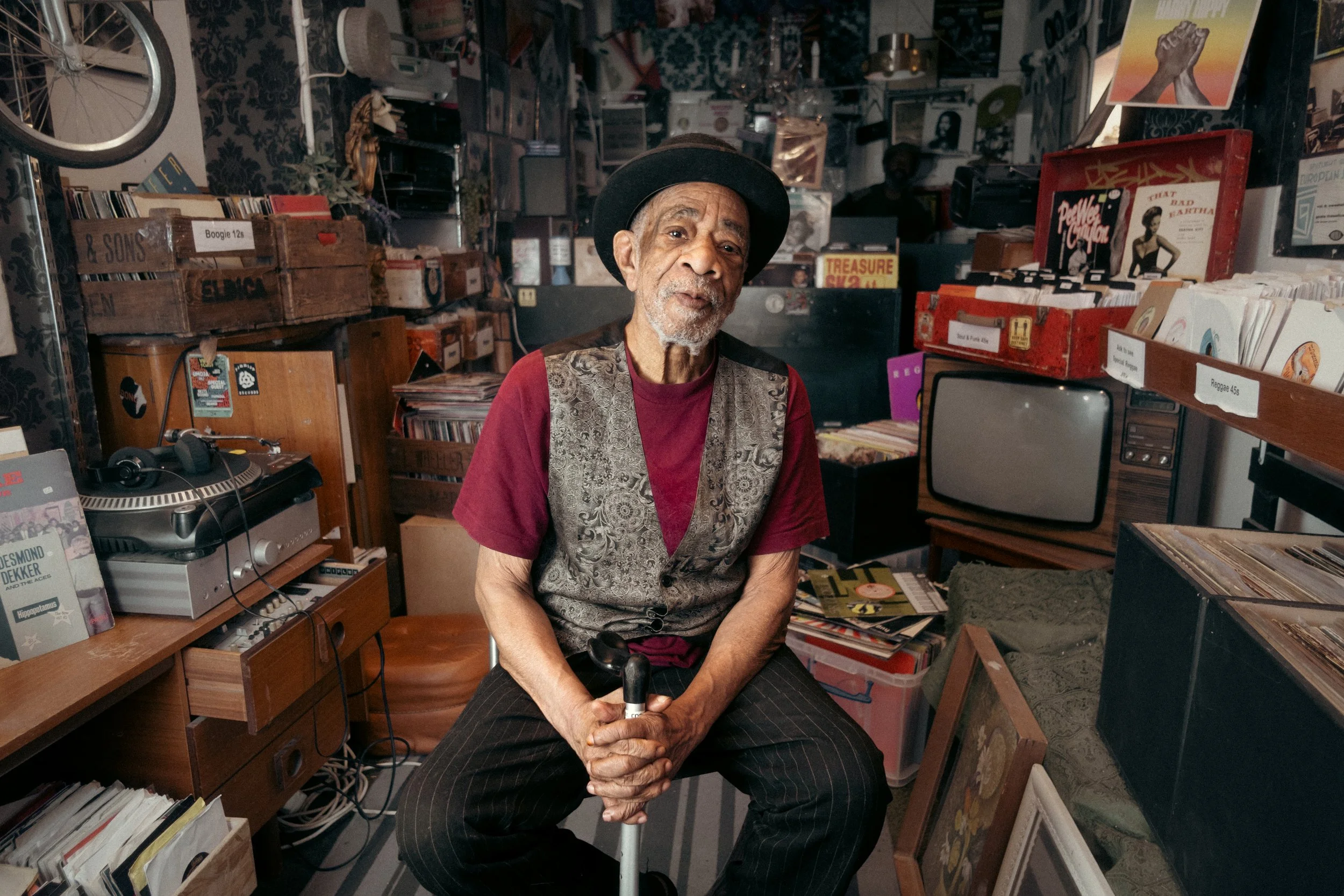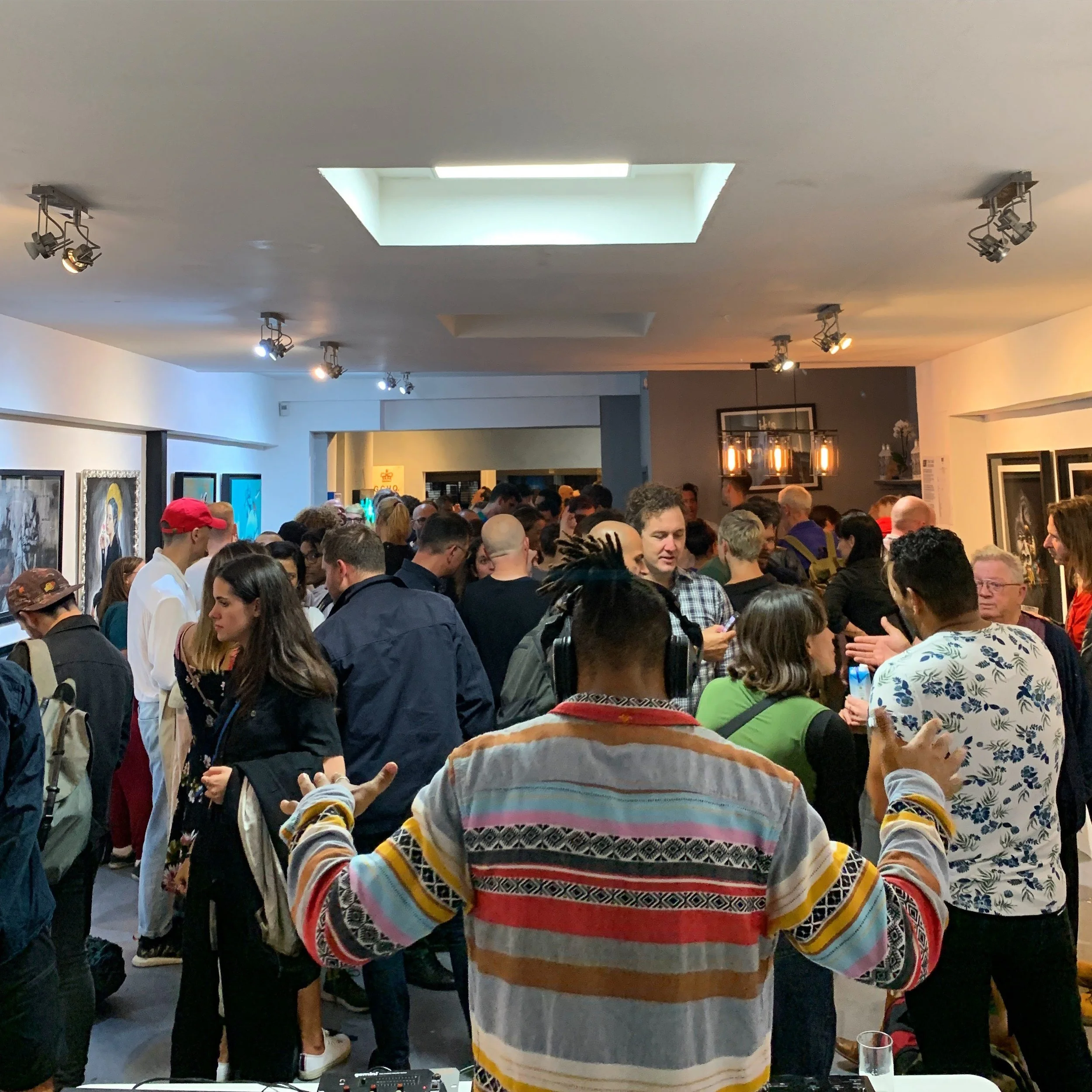Image credit: Hackney Museum
Newton Dunbar
Below is an extract from Newton Dunbar, taken before he passed away earlier this year, which will feature in Future Hackney’s forthcoming exhibition The Strip - a Love Letter to our Neighbourhood. The series features insightful oral histories and stunning accompanying portraits of the people who represent the radical history of Dalston’s vibrant personality.
“Dalston again is a very unique place. It’s got great historic value. And it is very unique in the sense that it attaches itself to you in more-or-less an emotional way.
During those days, Black music was not accepted in the system. There was no radio station that would play any form of Black music. But then came along Desmond Decker, who went into the British charts. By then we’ve gone into the year 1969. He went into the British charts with a song called “The Isrealites” – which became number 1… And he became the first Reggae superstar.
One of the local sounds was ‘Chicken The Thunderstorm’. He was a very popular Sound with the Blues dances. He came along, and for a while he did very well. In fact he was playing the night that Desmond Decker appeared at the club in 1969. And it’s a rather infectious thing. Once you break the mould and you start employing the different Sound Systems, the other Sound Systems would hear through the grapevine.
We had a bit of money in our pocket and first we decided a name and because there was four of us, there was a brand of cigarettes in Jamaica that we all knew that was called the Four Aces. So we said yeah that was a popular brand of cigarettes and there is four of us, let’s call it the four aces! It continued roughly for seven or eight months and then it got very crowded and we then started looking around for larger premises.
So there was advertised this place in Dalston, this place was called Club C and was owned by a guy called Charlie Collins who owned the lease on this place in Dalston and he wanted a thousand pounds for it. So we established the club in Dalston 1966. We had a nightclub licence but it was a very tough time and the police saw that what I was trying to do was black orientated, Black owned because of course that demon of prejudice filtered in. They weren’t blatantly prejudice but they created difficulties to make sure you do not progress.
The police tried to close us down. Took me to court fourteen times. I managed to go through a court procedure and won and managed to survive, as well as the club. They would try other tactics like a pretend raid, they would come in and of course Black people who had experience with the police before, would march out. Don Letts, the cultural historian, spoke of the relevance of my club.
The Four Aces, we were the original and our space was a very special space. In the lates 1980’s the Four Aces became the Four Aces incorporating Labyrinth - in collaboration with Labyrinth: ‘Prodigy’ get first big break. A very mixed crowd, sometimes over seven hundred people, sometimes eight hundred, that was the Labyrinth crowd, you know, it was phenomenal. But that’s how we progressed and for thirty years we went on.”
Visit The Strip - A Love Letter to our Neighbourhood exhibition from 19-29 Oct at BSMT Inside Gallery, 529 Kingsland Road, Dalston, E8 4AR.
The public street gallery will be situated at Dalston Lane, E8 3DF (opposite Hackney Peace Carnival Mural) from October 9th - August 2025.
Funded as part of Hackney Council’s Black History Season 2024.
The story behind this year’s Black History Season Poster
This year’s Black History Season poster hails the portrait of one of Hackney’s greatest music scene legends Newton Dunbar. The photograph, taken by Don Travis from Future Hackney, will feature in their upcoming exhibition ‘The Strip - a Love Letter to our Neighbourhood ’.
Find out more about Newton, the exhibition and Future Hackney below.
Future Hackney
“Funded by The National Lottery Heritage Fund to continue documenting Dalston’s radical history, we wanted to explore the cultural venues that put Dalston on the map. Many of the reminisces we already had mentioned a club called The Four Aces, so we followed up the link and found that Newton Dunbar was living in Hackney.
So many people we were documenting spoke about the club having a special part in their lives, so it made sense to speak to the guy responsible for this space. We co-authored with Newton setting up this shot in Eldica Records (thank you Andy who’s shop it is) on Bradbury Street as we felt it reflected a time of analogue music, reggae, R&B and sound system culture.
Newton was keen to work on this with us and make sure his story was available to people. Over three months we worked on this image and his story and memories of Dalston, The Four Aces and the struggle that people faced during those times. The legacy of the club was important to Newton and he would have been so proud to be a part of Hackney’s Black History Season. He very sadly passed a few months ago but his story is one that should be remembered…” Don Travis, Future Hackney





